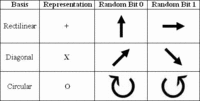-
China, U.S. to team up on cybersecurity
Secretary of State John Kerry announced on Saturday that China and the United States will join forces to start a working group on cybersecurity.Kerry’s announcement follows several attempts for a dialogue on the topic between the two sides.
-
-
Proposed budget shows DHS will have to do with less
The administration’s proposed 2013 budget shows that DHS will have to do with less: the department $39 billion is $625 million less than the department’s2012 budget, and, in addition, the department has committed to save an additional $1.3 billion by reducing administrative costs. Among the big-ticket items in the new budget: $714 million for a state-of-the-art animal disease lab; $494 million to fund research and development in cybersecurity, explosives detection, and chemical/biological response systems; and $221 million for 1,600 additional Border Patrol agents.
-
-
House panel approves CISPA, angering privacy advocates
The U.S. House Intelligence Committee passed a cybersecurity measure by an overwhelming vote, a measure which privacy advocates dislike because, they argue, it does not protect the personal information of citizens.
-
-
DHS, international tech-crime investigative body, partners on cybersecurity
The High Technology Crime Investigation Association (HTCIA) said it would team up with DHS Stop. Think. Connect. Campaign’s National Network. The partnership will promote awareness of cyber security to industry, university, and government organizations nationwide.
-
-
Sponsors of CISPA to address nagging privacy concerns about the bill
House Intelligence Committee chairman Mike Rogers (R-Michigan) and Ranking Member Dutch Ruppersberger (D-Maryland), sponsors of the Cyber Information Sharing and Protection Act (CISPA), say they are currently working on the draft to alleviate privacy concerns civil liberty advocates may have about the bill.
-
-
Future computers will identify users by thoughts, not passwords

Instead of typing your password, in the future you may only have to think your password, according to researchers. A new study explores the feasibility of brainwave-based computer authentication as a substitute for passwords.
-
-
A better single-photon emitter for quantum cryptography

In a development that could make the advanced form of secure communications known as quantum cryptography more practical, researchers have demonstrated a simpler, more efficient single-photon emitter that can be made using traditional semiconductor processing techniques.
-
-
House Intelligence Committee to work on cybersecurity bill in camera
The House Intelligence Committee will meet next week in order to draft a cybersecurity bill, known as the Cyber Intelligence Sharing and Protection Act (CISPA), but will not allow media members or the public to sit in on meetings during the process.
-
-
Fully secure communication
Can worldwide communication ever be fully secure? Quantum physicists believe they can provide secret keys using quantum cryptography via satellite. These physicists have, for the first time, successfully transmitted a secure quantum code through the atmosphere from an aircraft to a ground station.
-
-
NYPD issues strict guidelines for use of social media by officers
The New York Police Department (NYPD) has issued strict guidelines for employees using social media, and ordered its employees to take a second look at their profiles on Facebook, Twitter, and other social networking sites to ensure they conform to the new rules. The NYPD follows other police departments around the country in insisting that police officers draw a clearer line between their private life, as reflected in their social media postings, and their official duties.
-
-
DHS seeking student hackers
DHS Secretary Janet Napolitano on Tuesday said that due to “new and rapidly growing threats” of a cyberattack, hundreds of college-age hackers are needed to help deal with the massive number of daily incursions into the nation’s electrical grid and other critical infrastructure.
-
-
Draft cybersecurity bill to increase penalties for hacking substantially
A draft of a cybersecurity bill circulating among House Judiciary Committee members would strengthen a computer hacking law. The draft would stiffen penalties for cyber crimes and establish a standard for companies to tell consumers when their personal information has been hacked. The bill would also change an existing law, making a cyber crime attempt punishable as an actual offense.
-
-
Google’s assault on privacy: a reminder
A year ago, on 1 March 2012, Goggle launched its privacy-eroding policy of combining and collating users’ information across all of Goggle’s products. Google offers no opt-out option. Forcing consumers to share every aspect and nuance of their Internet practices with the company was not enough for Google. Yesterday, the attorney generals of thirty-eight states reached an agreement with Google concerning Google’s practice of spying on Wi-Fi users. The company sheepishly admitted that its Street View Vans collected 600GB of user data from unprotected Wi-Fi networks, and was fined a measly $7 million.
-
-
Obama: at least some Chinese cyberattacks on U.S. are “state sponsored”
In an interview to be aired today on ABC News, President Barack Obama said that some, but not necessarily all, cyberattacks on U.S. firms and infrastructure originating in China were “state sponsored.” Obama stressed the need to avoid “war rhetoric” when discussing cyberattacks, and renewed his calls for Congress to strengthen cyber security while protecting civil liberties.
-
-
Using jokes as an encryption method
Encrypting a message with a strong code is the only safe way to keep your communications secret, but it will be obvious to anyone seeing such a message that the sender is hiding something, regardless of whether they are encrypting their e-mails for legitimate or illicit purposes. The solution: hiding a secret message in plain sight – for example, in simple jokes.
-
More headlines
The long view
Researchers Develop AI Agent That Solves Cybersecurity Challenges Autonomously
New framework called EnIGMA demonstrates improved performance in automated vulnerability detection using interactive tools.
